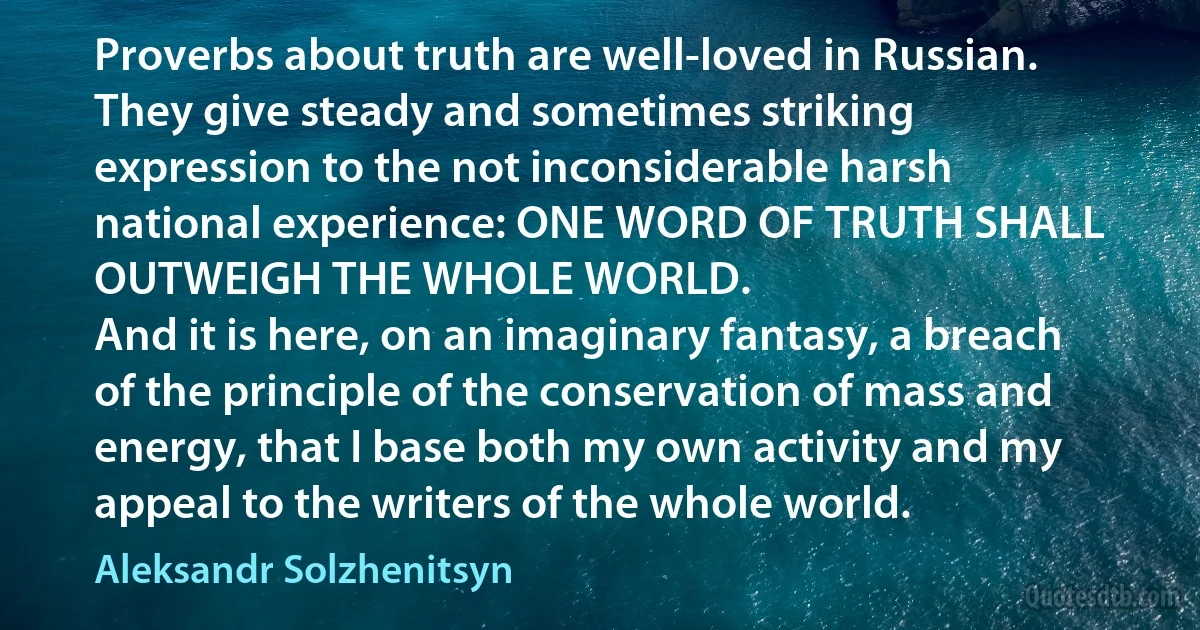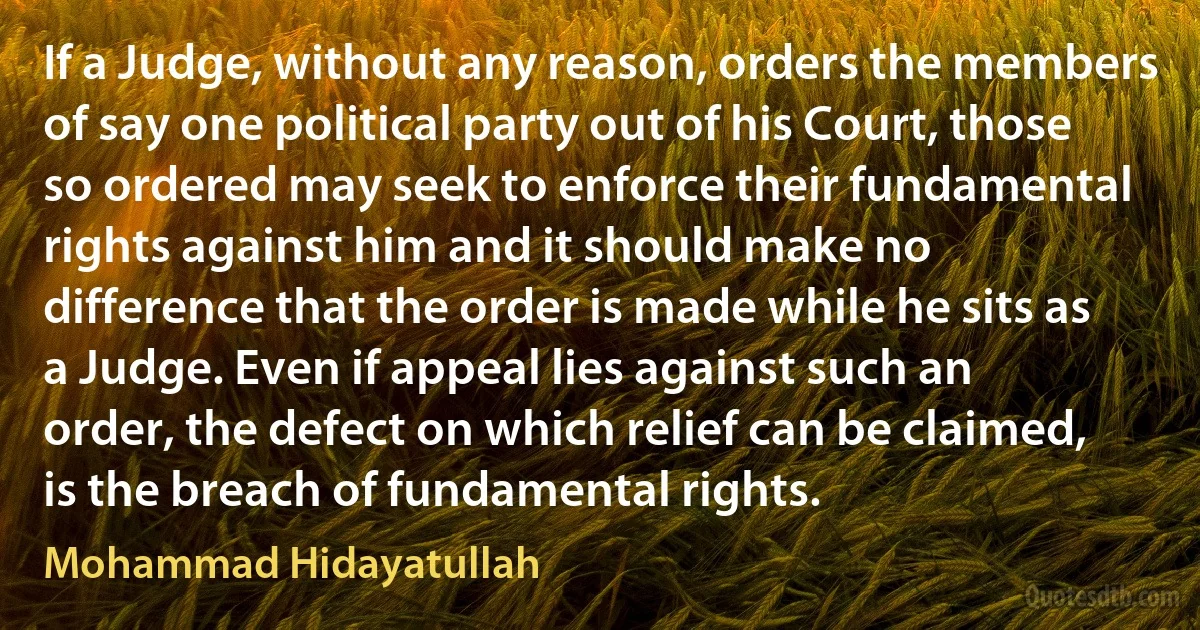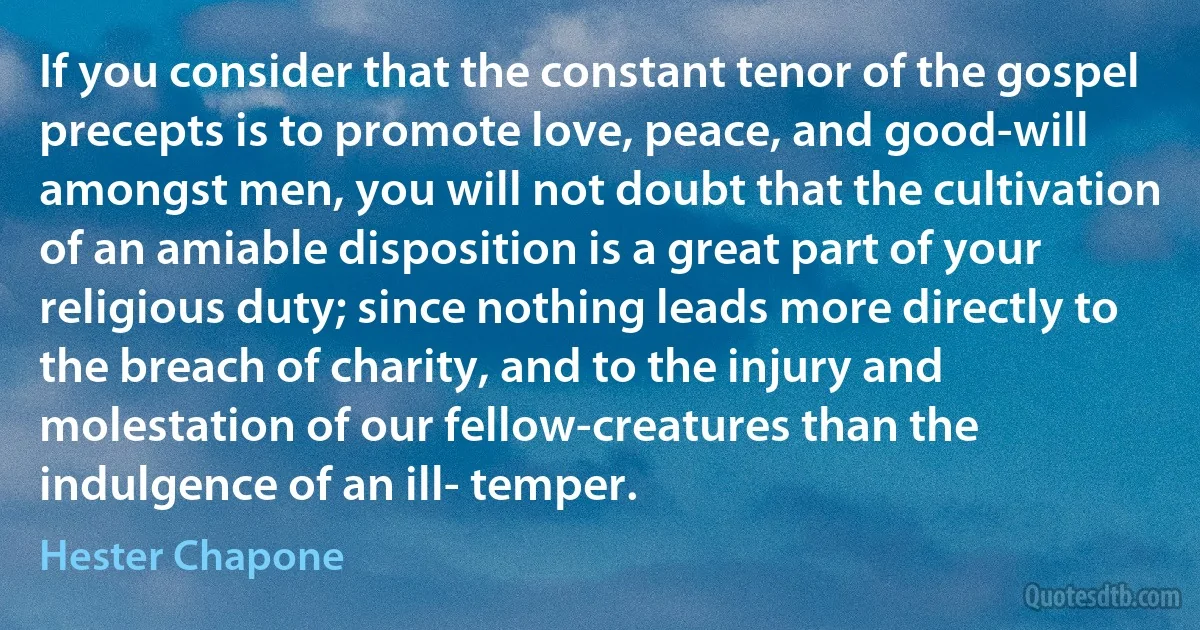Breach Quotes - page 2
A man of true honor protects the unwritten word which binds his conscience more scrupulously, if possible, than he does the bond a breach of which subjects him to legal liabilities, and the United States, in aiming to maintain itself as one of the most enlightened nations, would do its citizens gross injustice if it applied to its international relations any other than a high standard of honor and morality.

Grover Cleveland
When you'd lived long enough, she'd sometimes reflected, when certain habits had become ingrained no matter what refreshment of the neural pathways the immortality genes could bestow, ethics and etiquette became ever less distinct. Hitherto the involuntary equation had read one way, in disproportionate pangs of conscience over a small breach of manners. Now the terms had been inverted, and she felt over the Council majority's horrible, criminal, potentially murderous mistake the sort of acute embarrassment that might have been appropriate for some ghastly faux pas. Dreadfully sorry, I'm such a ditz about these nuclear attack protocols...

Ken MacLeod
The Federal commissioners sat down across the mahogany table from their Southern hosts. After a couple of minutes of chitchat meant to be polite- but during which the three Confederates managed to avoid speaking directly to Butler- Seward said, "Gentlemen, shall we attempt to repair the unpleasantness that lies between our two governments?" "Had you acknowledged from the outset that this land contained to governments, sir, all the unpleasantness, as you call it, would have been avoided," Alexander Stephens pointed out. Like his body, his voice was light and thin. "That may be true, but it's moot now," Stanton said. "Let's deal with the situation as we have it, shall we? Otherwise useless recriminations will take up all our time and lead us nowhere. It was, if I may say so, useless recriminations on both sides that led to the breach between North and South."

Harry Turtledove
And how does the God's existence emerge from the proof? Does it follow straightway, without any breach of continuity? Or have we not here an analogy to the behavior of the little Cartesian dolls? As soon as I let go of the doll it stands on its head. As soon as I let it go – I must therefore let it go. So also with the proof. As long as I keep my hold on the proof, i. e., continue to demonstrate, the existence does not come out, if for no other reason than that I am engaged in proving it; but when I let the proof go, the existence is there. But this act of letting go is surely also something; it is indeed a contribution of mine. Must not this also be taken into the account, this little moment, brief as it may be – it need not be long, for it is a leap. However brief this moment, if only an instantaneous now, this "now" must be included in the reckoning.

Søren Kierkegaard
Whensoever therefore the legislative shall transgress this fundamental rule of society; and either by ambition, fear, folly or corruption, endeavour to grasp themselves, or put into the hands of any other, an absolute power over the lives, liberties, and estates of the people; by this breach of trust they forfeit the power the people had put into their hands for quite contrary ends, and it devolves to the people, who have a right to resume their original liberty, and, by the establishment of a new legislative, (such as they shall think fit) provide for their own safety and security, which is the end for which they are in society.

John Locke
I have made no secret of my conviction, not merely that personality persists, but that its continued existence is more entwined with the life of every day than has been generally imagined; that there is no real breach of continuity between the dead and the living; and that methods of intercommunion across what has been deemed a gulf can be set going in response to the urgent demand of affection,-that in fact as Diotima told Socrates (Symposium, 202 and 203)

Oliver Lodge
Men and women who sell their birthright for a mess of pottage will tell you that their demise began with something small, with some seemingly insignificant breach of integrity that escalated. The little things do matter. It is not possible to profess righteousness while flirting with sin.

Sheri L. Dew



